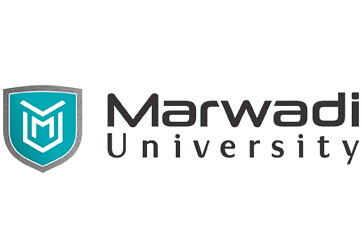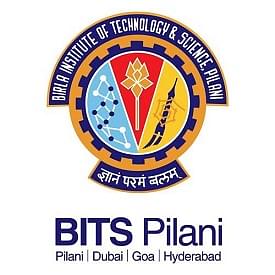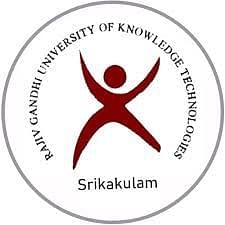Introduction about Ph. D in Automobile
Engineering
PhD in Automobile Engineering from best
college is an
advanced degree program that focuses on the research, development, and
innovation within the automotive industry. It combines principles from mechanical
engineering, electrical engineering, materials science, and computer science to
address challenges related to vehicle design, manufacturing, performance,
efficiency, safety, and sustainability.
A PhD in
Automobile Engineering offers students the opportunity to delve deeply into the
various aspects of automotive technology and engineering. Through rigorous
research, students aim to contribute new knowledge, methodologies, and
technologies to enhance the design, operation, and maintenance of automobiles.
This may involve investigating topics such as alternative fuel technologies,
autonomous vehicles, electric vehicles, vehicle dynamics, vehicle-to-vehicle
communication systems, and advanced driver assistance systems.
The
curriculum of a PhD program in Automobile Engineering typically includes
advanced coursework, independent research, and dissertation work. Students may
take courses in areas such as internal combustion engines, vehicle dynamics,
vehicle aerodynamics, automotive electronics, control systems, and automotive
materials. They also engage in hands-on laboratory work and computational
simulations to gain practical experience and develop technical skills.
One of
the key components of a PhD in Automobile Engineering is the doctoral
dissertation, where students conduct original research under the guidance of a
faculty advisor. This research may involve theoretical modeling, experimental
testing, data analysis, and computer simulations to address fundamental
questions or solve practical problems in the field of automotive engineering.
Graduates
of PhD programs in Automobile Engineering are well-prepared for careers in
academia, research institutions, government agencies, and the automotive
industry. They may work as university professors, research scientists,
automotive engineers, technology consultants, or industry leaders, contributing
to advancements in automotive technology and shaping the future of
transportation.
Overall,
a PhD in Automobile Engineering offers students a unique opportunity to become
experts in the field and make meaningful contributions to the development of
safer, more efficient, and more sustainable vehicles for the future.
What is admission process of Ph. D in
Automobile Engineering ?
The admission process 2024 for PhD in Automobile
Engineeringtypically involves several steps, though specifics may
vary depending on the university and program. Here's a general overview:
Research
and Identify Programs: Start by researching universities and institutions that offer PhD
programs in Automobile Engineering. Look for programs that align with your
research interests and career goals. Consider factors such as faculty
expertise, research facilities, and funding opportunities.
Meet
Admission Requirements: Review the admission requirements for each program you're interested
in. These requirements often include:
A
bachelor's or master's degree in mechanical engineering, automotive
engineering, or a related field.
A strong
academic record, usually with a minimum GPA requirement.
Prerequisite
coursework in areas such as mathematics, physics, and engineering.
Standardized
test scores, such as the GRE (Graduate Record Examination), though some
programs may waive this requirement.
Letters
of recommendation from academic or professional references who can speak to
your academic abilities and potential for success in a PhD program.
A
statement of purpose outlining your research interests, academic background,
career goals, and reasons for pursuing a PhD in Automobile Engineering.
A resume
or curriculum vitae (CV) detailing your educational background, research
experience, publications, and relevant work experience.
Prepare
Application Materials: Gather all required application materials and ensure they are complete
and well-prepared. This may include transcripts, standardized test scores,
letters of recommendation, a statement of purpose, and a resume or CV.
Submit
Applications:
Complete and submit your applications by the deadlines specified by each
program. Pay close attention to application deadlines and any additional
requirements or supplemental materials requested by the program.
Interview
(if required):
Some programs may require an interview as part of the admissions process. If
selected for an interview, be prepared to discuss your research interests,
academic background, and career aspirations.
Notification
of Admission:
After reviewing applications, the admissions committee will notify applicants
of their admission status. If admitted, you may receive an offer letter
outlining any funding offers, such as assistantships or fellowships, and any
additional requirements for enrollment.
Acceptance
and Enrollment:
If you receive an offer of admission, carefully review the terms and conditions
of acceptance, including any deadlines for accepting the offer and submitting
enrollment deposits. Once you accept the offer, you can proceed with the
enrollment process, which may include registering for classes and attending
orientation programs.
It's
important to start the application process early, gather all required
materials, and meet all application deadlines. Additionally, reaching out to
faculty members whose research aligns with your interests can be beneficial, as
they may provide guidance on the application process and may even be willing to
support your application.
What is eligibility for Ph. D in Automobile
Engineering?
The eligibility criteria for PhD in
Automobile Engineeringcan vary depending on the specific
requirements of the university or institution offering the program. However,
here are some common eligibility requirements:
Educational
Background: Most
PhD programs in Automobile Engineering require applicants to have a strong
educational background in engineering, particularly in mechanical engineering,
automotive engineering, or a closely related field. Typically, applicants
should have a bachelor's or master's degree from an accredited institution.
Minimum
GPA: Many
programs have a minimum GPA requirement for admission. The specific GPA cutoff
may vary depending on the institution and program, but applicants are generally
expected to have a high academic standing.
Prerequisite
Courses: Some
programs may require applicants to have completed specific prerequisite courses
in areas such as mathematics, physics, thermodynamics, fluid mechanics,
materials science, and automotive engineering fundamentals.
Research
Experience:
While not always mandatory, having research experience can strengthen your
application for a PhD program in Automobile Engineering. This may include
participating in research projects, completing a thesis or research-based
master's program, or publishing research papers.
Letters
of Recommendation:
Most PhD programs require letters of recommendation from academic or
professional references who can speak to your academic abilities, research
potential, and suitability for doctoral studies.
Statement
of Purpose:
Applicants are typically required to submit a statement of purpose or personal
statement outlining their research interests, academic background, career
goals, and reasons for pursuing a PhD in Automobile Engineering.
Standardized
Test Scores:
Some programs require applicants to submit scores from standardized tests such
as the GRE (Graduate Record Examination) or equivalent exams. However, this
requirement is becoming less common, and some programs may waive the GRE
requirement or place less emphasis on test scores.
English
Language Proficiency: For international applicants whose native language is not English,
proficiency in English is usually required. This may be demonstrated through
standardized tests such as the TOEFL (Test of English as a Foreign Language) or
the IELTS (International English Language Testing System).
Additional
Requirements:
Depending on the program, there may be additional requirements such as a
writing sample, interviews, or specific coursework prerequisites.
It's
essential to review the specific eligibility criteria and application
requirements for each PhD program you're interested in to ensure you meet all
the necessary qualifications before applying. Additionally, contacting the
admissions office or program coordinator for clarification on any requirements
can be helpful.
What is syllabus of Ph. D in Automobile
Engineering ?
The syllabus for PhD in Automobile
Engineering can vary significantly depending on the specific
research interests of the student, the focus areas of the program, and the
requirements set by the institution. However, here's a broad overview of
potential topics that may be covered in a PhD program in Automobile Engineering:
Advanced
Topics in Automotive Engineering: These courses provide an in-depth exploration of advanced topics
relevant to automobile engineering, including:
Advanced
vehicle dynamics and control
Automotive
powertrain systems
Vehicle
chassis design and optimization
Vehicle
aerodynamics and airflow analysis
Automotive
materials and manufacturing processes
Automotive
safety engineering
Electric
and hybrid vehicle technologies
Autonomous
vehicle systems
Vehicle-to-vehicle
communication and connected vehicles
Advanced
Mathematics and Engineering Courses: PhD students in Automobile Engineering may
take advanced courses in mathematics, mechanics, and engineering to develop a
strong theoretical foundation and analytical skills. Topics may include:
Advanced
calculus and differential equations
Computational
fluid dynamics (CFD)
Finite
element analysis (FEA)
Multibody
dynamics and kinematics
Optimization
techniques
Advanced
control theory
Research
Seminars and Workshops: PhD students often participate in research seminars, workshops, and
conferences where they present their own research findings, discuss current
topics in automobile engineering, and engage with peers and faculty members.
Independent
Research: The
core of a PhD program in Automobile Engineering is independent research
conducted under the supervision of a faculty advisor. Students work on a
dissertation, which involves identifying a research problem, conducting
original research, and making significant contributions to the field.
Dissertation
Proposal and Defense: Students typically develop a dissertation proposal outlining their
research objectives, methodologies, and expected contributions. They defend
their proposal before a committee of faculty members to receive approval to
proceed with their research.
Laboratory
and Experimental Work: Depending on the nature of the research, PhD students may engage in
laboratory experiments, prototype development, and testing to validate their
hypotheses and research findings.
Teaching
Experience: Some
PhD programs require students to gain teaching experience by serving as
teaching assistants for undergraduate courses or leading discussion sections.
Professional
Development: PhD
programs often include components aimed at developing students' professional
skills, such as:
Writing
and presenting research papers
Grant
writing and funding applications
Ethics
in research and academic integrity
Collaboration
and teamwork
Career
planning and job search strategies
It's
important to note that the specific syllabus and coursework requirements can
vary between institutions and may be tailored to meet the needs and interests
of individual students pursuing a PhD in Automobile Engineering. Prospective
students should consult with the program coordinator or faculty members to
obtain detailed information about the curriculum and research opportunities
available in a specific program.












